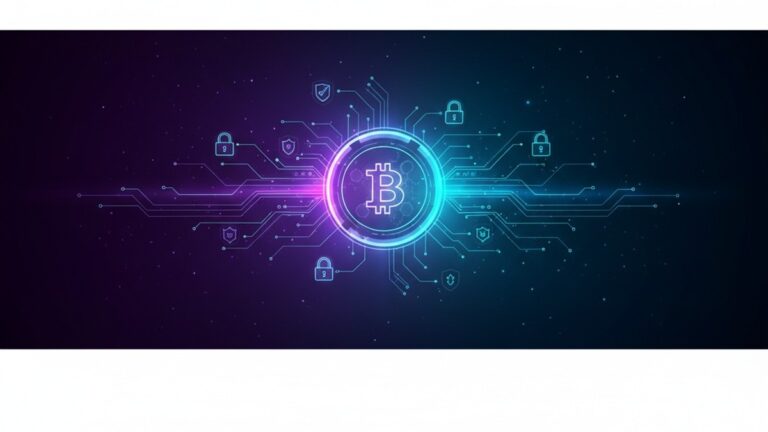In a world where digital currencies are becoming increasingly mainstream, concerns about security are never far behind. Today, prominent Bitcoin advocate and venture capitalist Tim Draper raised alarms about a potential threat from North Korea, urging the U.S. government to ramp up its cybersecurity defenses to safeguard against possible incursions.
Draper’s Warning: A Call for Action
Tim Draper, known for his bullish stance on Bitcoin and other cryptocurrencies, has never been shy about voicing his opinions on global security matters. On September 20, 2025, Draper once again took the stage, this time to warn of a potential threat from North Korea. During a recent interview, Draper emphasized the urgent need for the U.S. to enhance its cybersecurity measures, particularly in the realm of digital currencies.
According to Draper, North Korea might be leveraging its cyber capabilities to exploit vulnerabilities in the financial systems of other countries. “The stakes are high,” he said, “and the repercussions of inaction could be devastating not just for the digital economy but for national security as a whole.”
A History of Cyber Aggression
Draper’s concerns are not without precedent. North Korea has been accused of orchestrating several high-profile cyberattacks over the past decade. The 2017 WannaCry ransomware attack, which affected hundreds of thousands of computers worldwide, was allegedly linked to North Korean hackers. Moreover, the infamous 2014 Sony Pictures hack was attributed to the same actors, illustrating the regime’s capability to disrupt major corporations and infrastructures.
These incidents have painted a picture of a nation adept in cyber warfare, using it as a tool for both financial gain and political leverage. Draper’s warning resonates with many in the cybersecurity community who have been advocating for stronger defenses against such threats.
The Cryptocurrency Connection
Cryptocurrencies like Bitcoin are particularly vulnerable to cyber threats due to their decentralized nature. Unlike traditional banking systems, cryptocurrencies operate on blockchain technology, which can be both a strength and a weakness. While blockchain offers transparency and security through its distributed ledger, it also presents opportunities for illicit activities if not properly managed.
Draper highlighted that North Korean hackers could exploit these vulnerabilities to siphon funds from exchanges or individuals. “Cryptocurrencies have the potential to revolutionize the financial world,” Draper remarked, “but they also present new challenges that we must be prepared to face.”
Balancing Innovation and Security
As Draper calls for increased security measures, the question arises: How can governments balance the need for innovation in the cryptocurrency space with the necessity of securing it against potential threats?
One proposed solution is the implementation of more stringent regulatory frameworks. Governments could establish guidelines that ensure exchanges and digital wallets maintain high security standards. However, critics argue that too much regulation could stifle innovation and drive cryptocurrency activities underground.
On the other hand, industry insiders advocate for self-regulation, suggesting that the cryptocurrency community itself should develop best practices and security protocols. This approach would allow for flexibility and rapid adaptation to emerging threats, while still maintaining the decentralized ethos that underpins cryptocurrencies.
The Role of Public-Private Partnerships
Draper also emphasized the importance of collaboration between the private and public sectors in fortifying cybersecurity defenses. By working together, governments and private enterprises can share intelligence and resources to effectively combat North Korean cyber threats.
In recent years, several initiatives have been launched to foster such partnerships. The U.S. Department of Homeland Security, for example, has teamed up with private tech companies to enhance cybersecurity measures across various industries. Draper believes that similar collaborations are crucial in the realm of digital currencies.
A Global Challenge
While Draper’s immediate focus is on the U.S., the threat of North Korean cyberattacks is a global issue. Countries around the world are grappling with the challenges posed by digital currencies and the potential for their exploitation by malicious actors.
International cooperation, therefore, is vital. The establishment of global standards and protocols can help create a more secure environment for cryptocurrencies, enabling them to thrive without falling prey to cybercriminals.
Looking Ahead
As the world continues to embrace digital currencies, the need for robust security measures becomes ever more pressing. Tim Draper’s warning serves as a reminder of the potential threats lurking around the corner and the importance of proactive measures.
In the coming months, it will be interesting to see how governments and industry leaders respond to Draper’s call for action. Will they rise to the challenge and fortify their defenses, or will they continue to play catch-up with cyber adversaries? Only time will tell, but one thing is certain: the stakes have never been higher in the world of digital currencies.

Steve Gregory is a lawyer in the United States who specializes in licensing for cryptocurrency companies and products. Steve began his career as an attorney in 2015 but made the switch to working in cryptocurrency full time shortly after joining the original team at Gemini Trust Company, an early cryptocurrency exchange based in New York City. Steve then joined CEX.io and was able to launch their regulated US-based cryptocurrency. Steve then went on to become the CEO at currency.com when he ran for four years and was able to lead currency.com to being fully acquired in 2025.


